
 Flash News
Flash News
Document/ Benet Beci was taken into custody by SPAK before the elections
Montenegrin Army to train Ukrainian soldiers
The Serbian Federation reveals the stadium where it will host Albania on October 11!
The 40-year-old survived the air disaster: When I opened my eyes, I saw bodies everywhere, then...
State Matura 2025, foreign language exam grades published
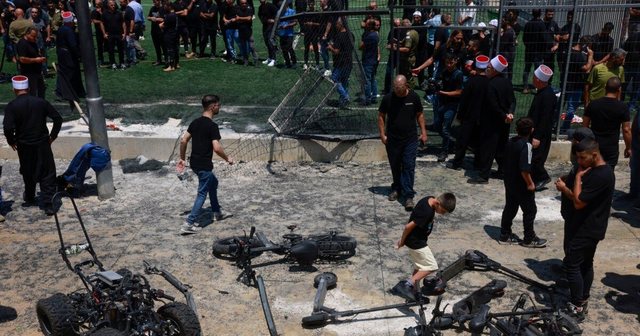
A deadly rocket attack in the Israeli-occupied Golan Heights has raised concerns that Israel and Hezbollah, the Iranian-backed Lebanese group, could engage in an all-out war — something both sides have said in the past. that they intend to avoid, although they are ready.
Israel said on Sunday it would crack down on Hezbollah after it accused the group of killing 12 children and teenagers in a rocket attack on a soccer field in the Golan Heights.
Hezbollah has denied any responsibility for the Majdal Shams attack, the deadliest in Israel since the start of the war in Gaza on October 7 last year. The war has been fueled by Hamas, after the group's militants carried out attacks in southern Israel, killing more than 1,200 Israelis and taking around 240 hostages.
About 116 hostages are believed to be still in Gaza, including 42 that the Israeli military believes have been killed. Israel then launched a campaign in Gaza to destroy Hamas. As a result of Israel's ground and air offensive in that region, more than 39,000 Palestinians have been killed, Palestinian health authorities report.
Hezbollah began fighting Israel on October 8, a day after Hamas attacked the community in southern Israel. Hezbollah, an ally of Hamas, has said its attacks are a sign of support for Palestinians facing Israeli bombardment in Gaza.
Many militants, supported by Iran in the region, are involved in the war in Gaza. Hezbollah is considered the most powerful member of Iran's network known as the Axis of Resistance.
Hezbollah has repeatedly said it will not stop attacks on Israel unless a ceasefire in Gaza is implemented. Although this time the developments are related to Gaza, Israel and Hezbollah have fought several times in the past.
The last time was in 2006. Israel has long considered Hezbollah the biggest threat to its borders and has been alarmed several times by its growing arsenal. Hezbollah's ideology is mainly defined by the conflict with Israel.
The group was created by Iran's Revolutionary Guards in 1982 to fight Israeli forces that invaded Lebanon that year, and waged guerrilla warfare for several years, prompting Israel to withdraw from Lebanon in 2000.
Hezbollah considers Israel to be an illegitimate state, created on occupied Palestinian land, and wants to see its destruction. The current conflict has harmed both sides. Tens of thousands of people have been forced to leave their homes – by both sides – in the border area.
The Israeli attacks have targeted the areas where Hezbollah operates, in the south of Lebanon, and have also hit the Bekaa Strait, near the Syrian border. Israel has occasionally struck other territories, killing a senior Hamas commander in Beirut on January 2.
As a result of Israel's attacks, about 350 Hezbollah fighters in Lebanon have been killed, and more than 100 civilians, including doctors, children and journalists, according to security and medical sources, reports the Reuters news agency.
The Israeli army said after Saturday's attack that the number of Israelis killed by Hezbollah attacks - since October last year - has reached 23 civilians and at least 17 soldiers. Hezbollah has denied being responsible for Saturday's attacks.
In Israel, the displacement of so many Israelis from the border area is a significant political point. Officials had hoped that displaced people would be able to return to their homes before September 1, when the new school year begins, but that is unlikely to happen.
Pretty. Despite the current tensions and hostilities, the whole situation is seen as content of a direct confrontation.
Israeli Prime Minister Benjamin Netanyahu warned in December that Beirut could turn "into Gaza" if Hezbollah launched a full-scale war.
Hezbollah has said in the past that it does not intend to escalate the conflict, although the group is ready to fight, and has warned that it is only using a small part of the capacity it has.
Any attempt by Israel to expand the conflict will be met with "destruction and displacement" in Israel, Hezbollah's deputy leader, Sheikh Naim Qassem, said in an interview with Al Jazeera in June.
In past wars, great damage has been done. In 2006, Israeli attacks leveled several Hezbollah-controlled neighborhoods in Beirut, destroyed Beirut's airport, damaged roads, bridges and other infrastructure.
Nearly 1 million people in Lebanon have fled their homes. In Israel, about 300,000 people have been forced to leave their homes and about 2,000 of the homes have been destroyed. Hezbollah has a much more advanced arsenal than it did in 2006, including missiles it claims can hit any part of Israel.
The group has seen advances in its weapons arsenal since October, shooting down Israeli drones, launching explosive drones into Israel, and launching more sophisticated missiles. Israeli troops have invaded Lebanon several times in the past, even reaching Beirut in 1982, with the aim of destroying Palestinian guerrillas based in Lebanon.
Much will depend on what happens in Gaza, where efforts for a ceasefire and the return of hostages have all but failed. A ceasefire could significantly reduce tensions in southern Lebanon.
The United States, which considers Hezbollah a terrorist group, has been a key participant in efforts to escalate the conflict. Hezbollah has signaled that it is open to an agreement that benefits Lebanon, but has said that there can be no discussions until the offensive in Gaza is stopped.
Israel has also said that it prefers diplomatic solutions to restore security in the north of the country, but is also prepared for military offensives to achieve the same goal. Amos Hochstein, the US official who has dealt with these issues between the parties, had reached an unexpected agreement in 2022, between Lebanon and Israel, regarding the disputed maritime border.
Hochstein said on May 30 that he did not expect peace between Hezbollah and Israel, but the discussion of some points avoided a major conflict and made it possible to agree on a border that both sides recognize./ REL
Latest news


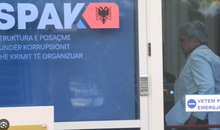
Document/ Benet Beci was taken into custody by SPAK before the elections
2025-06-12 22:52:12

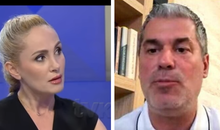






Montenegrin Army to train Ukrainian soldiers
2025-06-12 20:13:45
Italia në alarm, zgjebja po përhapet me shpejtësi
2025-06-12 20:11:39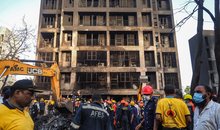

Dua Lipa gets engaged: I'm happier than ever with Callum Turner
2025-06-12 19:44:29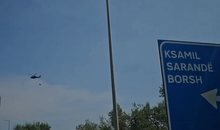

Around 29,000 Albanians left last year, INSTAT estimates
2025-06-12 19:31:23

Rama "sacrifices" the socialists to make fun of Soros
2025-06-12 19:13:33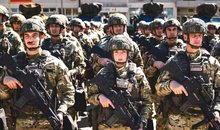
Montenegrin Army to participate in EU military assistance mission to Ukraine
2025-06-12 18:57:36

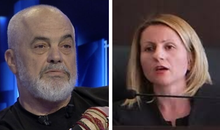

Body acne, six ways to prevent it
2025-06-12 18:05:03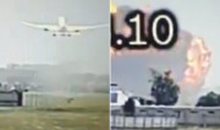

State Matura 2025, foreign language exam grades published
2025-06-12 17:31:26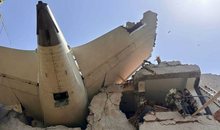
Video/ This is the moment the Air India plane crashes with 242 people on board
2025-06-12 17:27:59
GJKKO postpones the hearing for 'Golden Bullet' to June 17
2025-06-12 17:23:50
The decline of democracy in Albania, the alarm from the European Parliament
2025-06-12 17:03:38

What does the murder of Superman Veliaj reveal about May 11?
2025-06-12 16:40:53

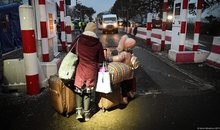
UN report: Europe is surrounded by a belt of countries in crisis
2025-06-12 16:08:47
Sula: The scandal with the state matura, a failure of the education system
2025-06-12 16:08:42

'I have no affection', Erion Isai separates from his wife
2025-06-12 15:40:38

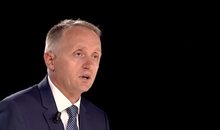
On the 84th anniversary, the SP is ever bigger, Albania is ever smaller
2025-06-12 15:07:25
A "lazy day" a week can reduce stress and stroke risk
2025-06-12 14:56:30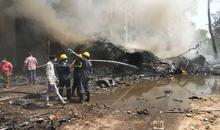

Tragic in Fier, 28-year-old found dead in the yard of his apartment
2025-06-12 14:39:15
How does temperature affect body composition?
2025-06-12 14:33:18
Throwing company waste into the Buna River, 31-year-old employee prosecuted
2025-06-12 14:30:11
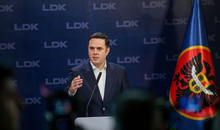
LDK's Abdixhiku unveils 15-point agenda for a unity government
2025-06-12 14:14:24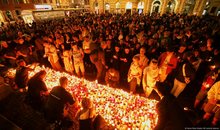
From shootings to stabbings/The history of deadly school attacks
2025-06-12 14:11:51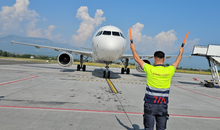
3 Albanians, part of criminal organizations, extradited to Italy
2025-06-12 13:59:15
A 26-year-old man is arrested for the armed conflict in Ali Dem
2025-06-12 13:40:31
Report/ Albania worsens in gender equality index
2025-06-12 13:40:14

Quarrel between neighbors in Patos, 35-year-old injured with screwdriver
2025-06-12 13:07:05

Accident on the Krahes-Memaliaj axis, a 65-year-old man is injured
2025-06-12 12:45:49

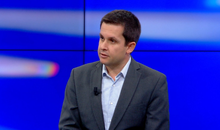
Demand a recount of votes in Tirana, the Court dismisses Alimehmet's case
2025-06-12 12:22:08
Suffering cardiac arrest, vacationer dies on Qerret beach
2025-06-12 12:05:48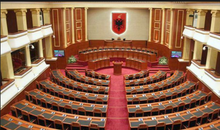

The market is "demanding" a minimum wage increase
2025-06-12 11:52:37
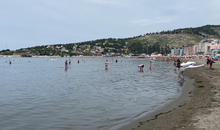
Alarm on the coast/ Elderly woman from Kosovo risks drowning!
2025-06-12 11:25:51
The hearing for "Golden Bullet" is postponed due to the lack of lawyers.
2025-06-12 11:06:27
The Special Court schedules the hearing for the “Partizani” case
2025-06-12 11:00:42
"We work to steal"/ Berisha releases Rama's video: The first time he is honest!
2025-06-12 10:52:11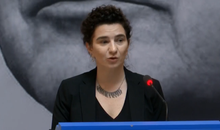
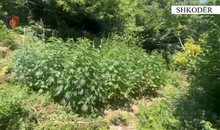
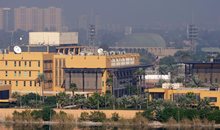
US limits non-essential staff at embassy in Iraq after rising tensions with Iran
2025-06-12 10:19:44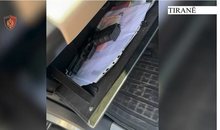

Hero in Greece/ Albanian immigrant saves two children from drowning in river
2025-06-12 09:52:46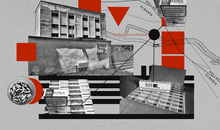
Albanian Customs Officials Crack Down on Cigarette Smuggling Business
2025-06-12 09:37:17
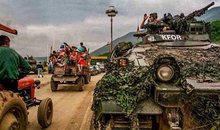
26 years of freedom! Kosovo marks Liberation Day today
2025-06-12 09:14:19
Clear skies across the country, weather forecast for today
2025-06-12 09:03:08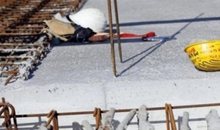
The level of salaries in construction and tourism remains below average
2025-06-12 08:49:54


Murder in Xibar i Klos/ Hazbi Velsula, the victim's cousin, in custody
2025-06-12 08:23:45
Morning Post/ In 2 lines: What mattered yesterday in Albania
2025-06-12 08:09:51
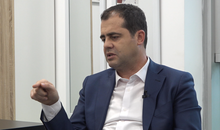
Bylykbashi: The EPP Assembly adopted the strongest resolution in this forum
2025-06-11 22:46:15
A person is found dead in Klos, suspected of being murdered
2025-06-11 22:33:38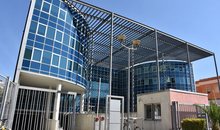
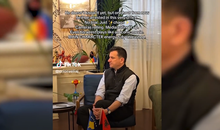

Rape the cleaning worker in Athens, the Greek police declare the Albanian wanted
2025-06-11 21:30:13
Disappointment with Latvia, Elseid Hysaj reacts after disappointing transfer
2025-06-11 21:15:08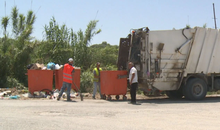

EU: New package of sanctions against Russia focuses on energy and finance
2025-06-11 20:51:17

Scandal in Lezhë/ The apartment is covered by sewage
2025-06-11 20:37:59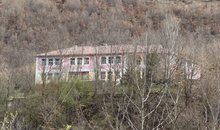
Rural schools left behind in the use of digital tools
2025-06-11 20:09:51
Kosovo bans import of sheep and goats from Albania
2025-06-11 20:01:17
Shot in the head, former Albanian policeman dies after 3 days
2025-06-11 19:41:08


Weather-shaping factors: How cloud-dwelling microbes affect our lives
2025-06-11 19:01:22


